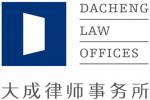As discussed in our last column, we can see the attitude of the Supreme People’s Court (SPC) is that the default interest and liquidated damages under loan contracts are in fact “high interest on loans” from specific cases. Where a loan contract provides for both interest and default interest, and liquidated damages, the protection is still accorded, with the standard that the maximum amount may not exceed four times the interest on bank loans of the same type.
From our perspective, the agreement reached by parties on interest, default interest and liquidated damages in the loan contract falls within the autonomy of parties’ will.
As long as such agreement does not violate the mandatory provisions of the laws and administrative regulations, then its legality should be recognised, therefore the liability in the form of interest, default interest and liquidated damages may co-exist in the loan contract.
Compensation for damages
Generally speaking, the main purpose of the liability for breach of contract is to provide compensation for damages, however Chinese laws do not exclude the adoption of punitive liquidated damages within reasonable limits. Punitive liquidated damages within reasonable limits can effectively cause the borrower to actively perform the obligations under the contract.

Senior Partner
Dacheng Law Offices
According to the Interpretation of the Supreme People’s Court on Certain Issues concerning the Application of the Contracts Law, providing that the actual losses can be determined, the liquidated damages can exceed the actual losses, however the excess should not be more than 30%. This provision reflects the punitive nature of the liquidated damages.
As a predetermined liability for breach of contract and an agreement on the future compensation for damages by the estimate of the parties, the liquidated damages agreed in the contract are the true expressions of the intention between the parties, which reflect the principle of autonomy more thoroughly and should be protected by laws.
As discussed in Three Theories of Commercial Adjudication Philosophies: Origin, Ontology and Practice (Guidance on Commercial Adjudication volume 1 of 2014), written by Li Zhigang, a judge of the SPC: “the financing cost of an enterprise is clearly excessively higher than the interest rate of loans from business banks, therefore the profit of the defaulters and the cost of non-defaulting parties would not be accurately reflected, even though the interest rate for an inter-enterprise loan is determined in light of the benchmark interest rate of loans … Abiding by the autonomy of private law, spirit of contract and the commercial adjudication philosophy of ‘benefit first’, recognising the validity of a sporadic inter-enterprise loan contract and calculating the interest at the agreed rate is more aligned with the profit-oriented nature of the capital.”

Associate
Dacheng Law Offices
Judge Li recognises the spirit of contract in the inter-enterprise loan contract and confirms the validity of the contract agreement. However, he also believes that “the loan with windfall profit goes against the profit support of industrial capital and the average profit rate of capital, therefore the protection of interest rate should still be limited to four times the benchmark interest rate”.
At this point, he switches back to the standpoint that the scope of protection for the inter-enterprise loan contract should be limited to four times the benchmark interest rate.
From our perspective, in practice, the resolution of default in disputes involving the inter-enterprise loan contract should be decided on a case-by-case basis, examining the earnings accrued from the loan used by the defaulter, the extent of default and other circumstances, and also taking the earnings accrued from the equity funds by the lender – i.e. the estimated profit of the non-defaulting party – into consideration.
Limit may be exceeded
In cases where the defaulter gains high yield by using the loan, or is in severe default, or the yield of the non-defaulting party’s equity funds is relatively high, the limit of “four times benchmark interest rate” may be exceeded appropriately.
Although current judicial practice distinguishes the nature of interest and liquidated damages, regarding the liquidated damages as “high interest on loans” does not distinguish their function and does not reflect the punitive function of liquidated damages.
Meanwhile, to limit the protection to “four times benchmark interest rate” is likely to result in the stereotyped trial of loan cases, which does not help the judge to look into the facts of the case thoroughly and realise individual justice, therefore it remains open to question.
Ease the difficulties
Inter-enterprise loans and private loans are very helpful and necessary supplements to financing, which can help ease the financing difficulty of small- and medium-sized enterprises (SMEs), and enhance the adjustment and adaptive capacity of economical operation.
In the context that SMEs find it difficult to get financing, we have seen that the policies and laws on inter-enterprise loans are gradually becoming more flexible. In the past, the courts may have found the inter-enterprise loan invalid, but they are gradually beginning to recognise spirit of contract and respect for the objective facts of cases. We can expect to see further protection of default interest and liquidated damages in the future.
Practice more unified
In conclusion, the current judicial practice regarding the validity of inter-enterprise loan contracts is becoming more unified, which means temporary inter-enterprise loans are normally deemed valid. If the loan contract is found valid, whether the claims of interest, default interest and liquidated damages can be supported or not, the popular treatment is that the lender can claim the interest, default interest and liquidated damages at the same time, however the total maximum amount of these should not exceed four times the interest rate for loans of the same term and type posted by the People’s Bank of China.
Li Tao is a senior partner and Luo Huichao is an associate at Dacheng Law Offices in Beijing
7/F, Building D, 9 Dongdaqiao Road
Chaoyang District, Beijing 100020, China
Tel: +86 10 5813 7799
Fax: +86 10 5813 7788
E-mail: tao.li@dachenglaw.com
huichao.luo@dachenglaw.com
www.dachenglaw.com






















